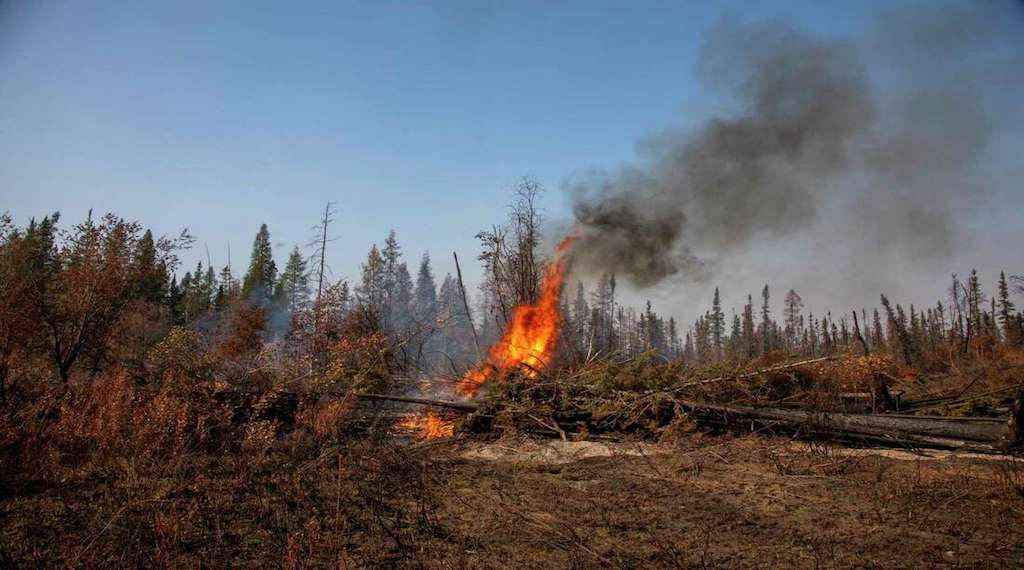As summer draws to a close, a record wildfire season in Canada continues to take a toll, with new evacuation orders in place in British Columbia.
The relentless fires led to a coordinated response by government leaders and citizens. One organization that chose not to pitch in was Meta, which refused to lift a block in Canada on news sharing across its platforms despite pleas and condemnation from politicians including Prime Minister Justin Trudeau, who called Meta’s refusal “inconceivable.”
Meta pulled news content in protest of Canada’s Online News Act, legislation slated to take effect in December that would make Big Tech companies pay publishers for the news they produce before it’s shared on social media.
Meta has done this before, in response to similar legislation in Australia. The blockage led that country to backtrack on its policy. But Meta’s intransigent refusal to share vital information during a disaster is an especially galling display of corporate callousness.
The impasse also revives thorny questions about the corrosive relationship between news outlets and tech giants.
What responsibility does tech companies have toward the social good? How should governments regulate Big Tech? What can old school media companies do to ensure their future viability?
Continued viability is an optimistic goal when the very survival of many news organizations is at stake. One-third of journalism jobs vanished in Canada over the past 15 years, per government figures, and 450 outlets shuttered over the same period. Then there’s Facebook, which last month counted 20 million daily users in Canada, or just over half the population.
That number held steady after the news block in early July, bolstering Meta’s argument that news makes too little profit to justify compensation. “The (Online News Act) is based on the incorrect premise that Meta benefits unfairly from news content shared on our platforms, when the reverse is true,” the company said in June.
Yet no matter the dollar amount news brings to Facebook, it’s among the site’s most shared content. According to Facebook’s own latest report, news sites made up 13 of the top 20 viewed domains in America earlier this year. Eighteen of the top 20 links were to news articles. Since social media visits are rarely one stop shops, the people that news brings to Facebook no doubt benefit more lucrative areas like e-commerce.
Despite this, Facebook was moving away from news content even before the legislation. The platform’s referrals to popular news sites in Canada was down nearly 75 percent since 2020.
Does social media have a responsibility to disseminate news content?
In instances like the wildfires where it serves the public good, absolutely. Facebook reps said during the fires that the site’s safety checks, where users can report their well-being and provide information, made up for the lack of official coverage. Those self-reported alerts may offer relief and some clarity during local crises, but what about events like elections or pandemics with nationwide or international implications? And how can any self-reported news not risk misinformation, deliberate or not?
Governments should regulate Big Tech’s interactions with news outlets in order to protect journalism’s service to the public good. Such regulation is tricky since it requires politicians to define what qualifies as a news site and whether all are worthy of equal protections. Claims of favoritism may arise. There’s also the risk of political bias in which outlets governments opt to shield.
The bottom line is that regulation like Canada’s isn’t new. Canada, like the United States, codifies freedom of the press. Antitrust actions are also precedents for the Canadian and Australian bills.
Key to these measures is that they protect publishers without meddling in what they publish. That’s one reason I laud the Canadian plan, which only involves the government after negotiations between tech and news outfits stall. Regulations like these encourage fairer deals in a journalism marketplace gone topsy-turvy. They should provide clear definitions of legitimate news and benefit players big and small, regardless of politics.
News is a public good. Its future cannot depend on increasingly convoluted subscription schemes or corporate synergies that benefit a handful of the biggest publishers. And governments must not allow Big Tech to bully the people who actually produce this good.
This article was originally published in the Stamford Advocate.

